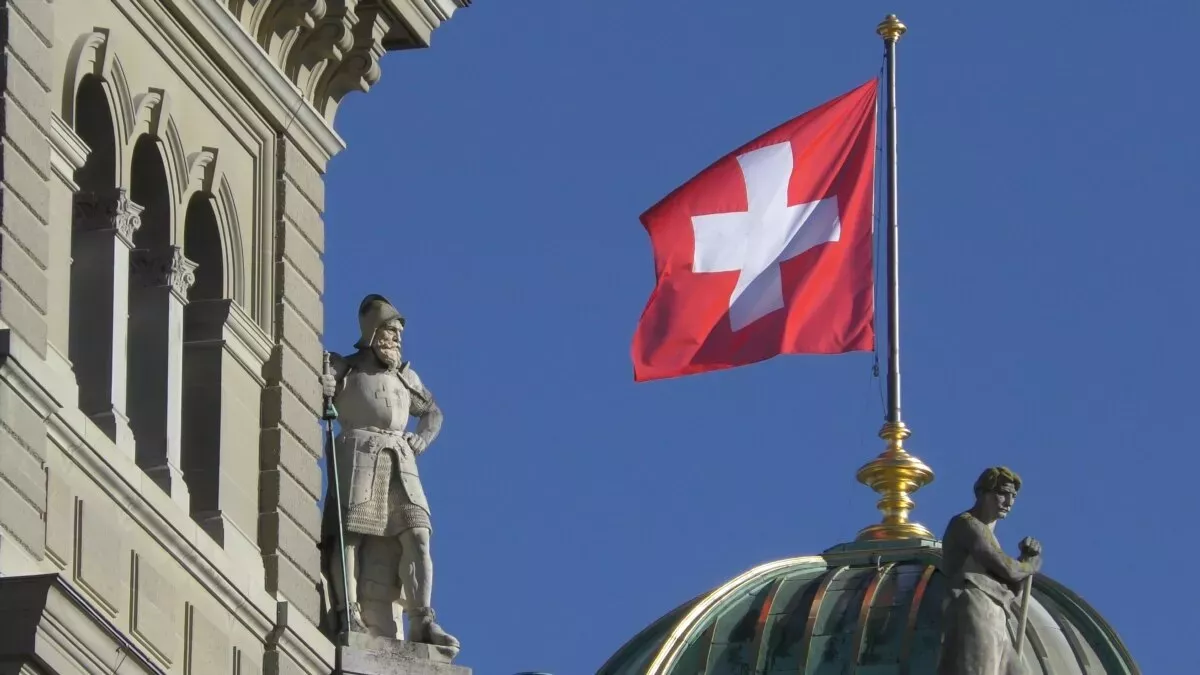Failure of “Armenian vendetta” in Switzerland 4:0 — What a Blow
In June, the Armenian diaspora in Switzerland, through its paid lobbyists, launched an unprecedented campaign — both in scale and scope — targeting Azerbaijan and its interests in the country. During just the two-week summer session of the Swiss parliament, there were four (!) attempts at dirty provocations directly or indirectly aimed against Azerbaijan.
For example, on June 3, the National Council — the lower house of the Swiss Parliament — held a vote on the draft resolution titled “Preventing the Financing of Wars by Swiss Companies under Foreign Control.” This initiative was reintroduced to the session agenda by Stefan Müller-Altermatt, one of the most notorious pro-Armenian members of parliament.

The draft resolution was primarily aimed at targeting SOCAR’s operations in Switzerland. According to procedural rules, this provocation — which had already been overwhelmingly rejected by the Legal Affairs Committee back in 2024 — could be reintroduced during the summer plenary session of parliament, a move that Müller-Altermatt eagerly seized upon. However, contrary to the expectations of the Armenian lobby, the draft resolution was once again rejected by a significant majority vote.
This fiasco did not deter the Armenian diaspora’s hired agent. He proceeded to place on the session agenda a new inquiry to the government titled “Switzerland’s Position and Strategy for Ensuring Peace in the South Caucasus and Protecting Armenia.” Müller-Altermatt had already submitted this inquiry to the Swiss government in 2024. At the time, the government refused to respond, stating in writing that there was no need for a new report. As a result, on June 13, the inquiry was entirely removed from the parliament’s agenda.
These failures taught the Armenian diaspora nothing. Another of its proxies, MP Erich Vontobel, submitted questions to the Swiss government regarding the organisation of a so-called “International Peace Forum on the Nagorno-Karabakh Conflict.” In his appeal, he claimed that “the Swiss government is obliged to organise this ‘Peace Forum’ to ensure the safe return of displaced Armenians,” but no information had been released about any progress in this matter.
In response, at the parliamentary session held on June 10, the Swiss government stated that the Azerbaijani side does not recognise “Nagorno-Karabakh” as any kind of entity and will therefore completely ignore such events. It further emphasised that the only parties to conflict resolution are Azerbaijan and Armenia, who are conducting direct negotiations without intermediaries and do not require additional international platforms. This, in effect, makes the organisation of such a “forum” practically impossible.
This position by the Swiss government effectively nullified all efforts by Armenian lobbyists, who, just days before the start of the parliamentary summer session, held a loud conference and even created a special “Public Support Committee” for this venture — with the participation of no fewer than 16 (!) members of parliament.

Finally, on June 18–19, the parliamentary session reviewed a public initiative titled “For a Fair Energy and Climate Policy: Investments in Prosperity, Employment, and the Environment.” The proposal called for a nationwide referendum to significantly restrict the operations of foreign energy companies in Switzerland. This could have affected companies such as SOCAR TRADING, SOCAR ENERGY, and TAP (whose headquarters is located in Switzerland).
The fingerprints — or rather, the noses — of the Armenian diaspora were clearly visible behind the push for this initiative. However, an overwhelming majority of MPs, aware of the harmful impact such a move would have on the national economy, decisively rejected the provocation.
Thus, the enormous efforts of the Armenian diaspora—their four attempts to create something akin to the French Parliament and Senate within the Swiss legislative body—were effectively thwarted. These provocations were not only directed against the traditional foe of the global Armenian community—Azerbaijan. On the eve of potential concessions to Baku’s demands and corresponding progress toward a peace treaty between Azerbaijan and Armenia, one of the goals of this large-scale gambit was the current Armenian government, which the diaspora views as “traitorous.” This is also reflected in Pashinyan’s recent statement in Istanbul, where he made it clear to the diaspora that their opinion holds no sway within Armenia itself, and that the fate of the country should be determined only by Armenians living there.
In any case, like most previous adventures by the Armenian diaspora, this one also ended in complete failure. All four provocations in the Swiss Parliament failed to gain traction. To paraphrase a well-known song, one can’t help but exclaim: “What a blow, what a blow — Azerbaijan 4, Armenian diaspora 0!”








